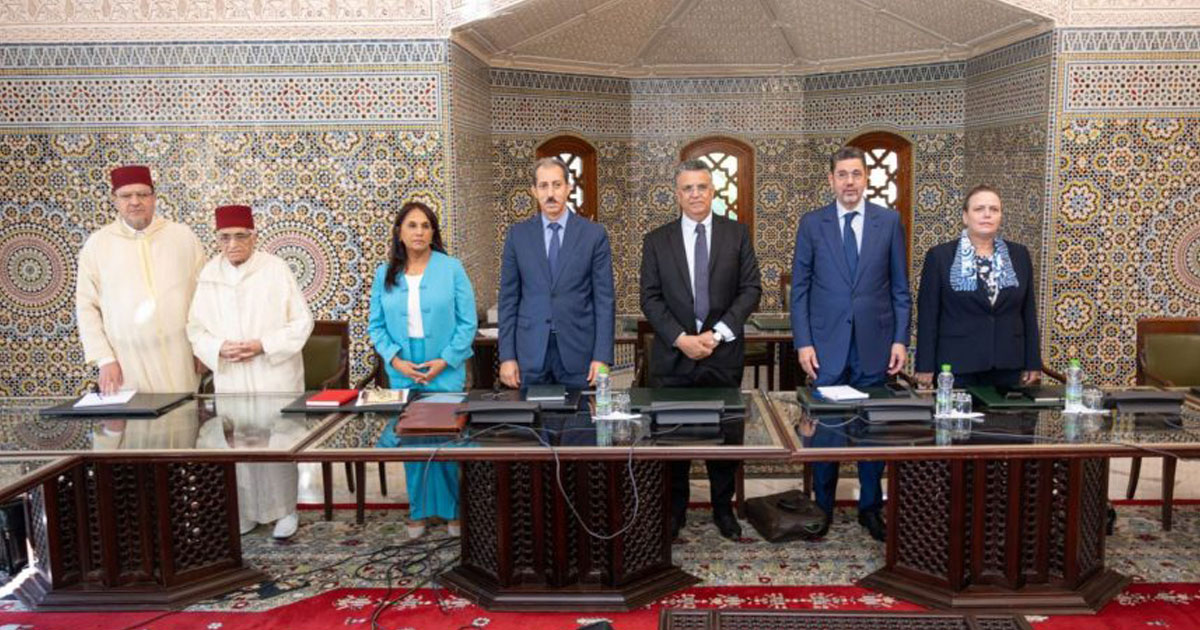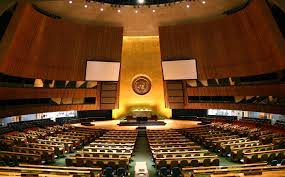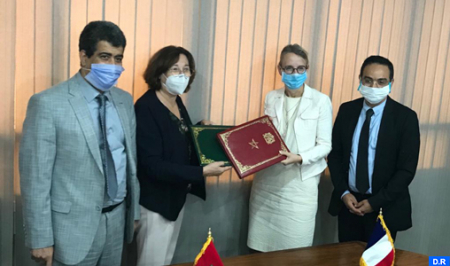King Mohammed chaired on Monday a new working session to follow up on the reform of the family code. Building on the achievements of the 2004 code, the King urged that the adoption of the new family law should be permeated by justice, equality, solidarity and harmony with the percepts of Islam and universal values.
The session was attended by members of a committee that submitted to the King a first draft of the code, including amendments with a religious character, that required the arbitrage of the Monarch and the opinion of the supreme religious council, said a statement of the Royal Office.
The new code, with 100 amendments, had been submitted within deadlines to the King, who asked for the opinion of the supreme religious council concerning issues with a religious aspect.
The King urged the council to further examine some issues of Islamic jurisprudence in line with “constructive ijtihad” to keep pace with the development of the Moroccan family, and to “provide innovative answers that meet contemporary requirements.”
In September 2023, the King, who has the title of the Commander of the Faithful, made it clear that the new code “should not forbid what is lawful not prohibit what is permitted.”
Once ready, the new draft family code will be submitted to the Parliament’s approval.
In this respect, the Monarch urged that the legislative process, including parliamentary debates, should be permeated by the principles of “justice, equality, solidarity, and harmony,” in line with Islamic precepts and the universal values in keeping with the international agreements ratified by Morocco, said the royal office statement.
Twenty years after the latest family code reform (2004), the King said this new review should be tailored to “ensure the legal, social, and economic protection of the family…the basic unit of society”
“This requires ensuring that all the aforementioned points are reflected in clear and understandable legal rules to overcome conflicting judicial interpretations and disputes over their interpretation,” the king said.
In this regard, the King instructed the cabinet members in charge of the reform to communicate with citizens and explain to them the new reform in addition to raising the public’s awareness to their rights under the new code.
The new law was elaborated following a participatory approach during which hearing sessions and proposals were submitted by society’s stakeholders including political parties, and civil society associations.
In addition to the Head of Government, the working session was attended by Justice Minister, who made a presentation before the King in his capacity as a member of the committee responsible for the revision of the code and as the minister in charge of engaging with members of parliament during the legislative phase.
The meeting was also attended by Islamic affairs minister, as a member of the Supreme Ulema Council, who presented the council’s conclusions regarding certain proposals with a religious character, in addition to Solidarity, Social Integration, and Family, minister Naima Ben Yahia.



